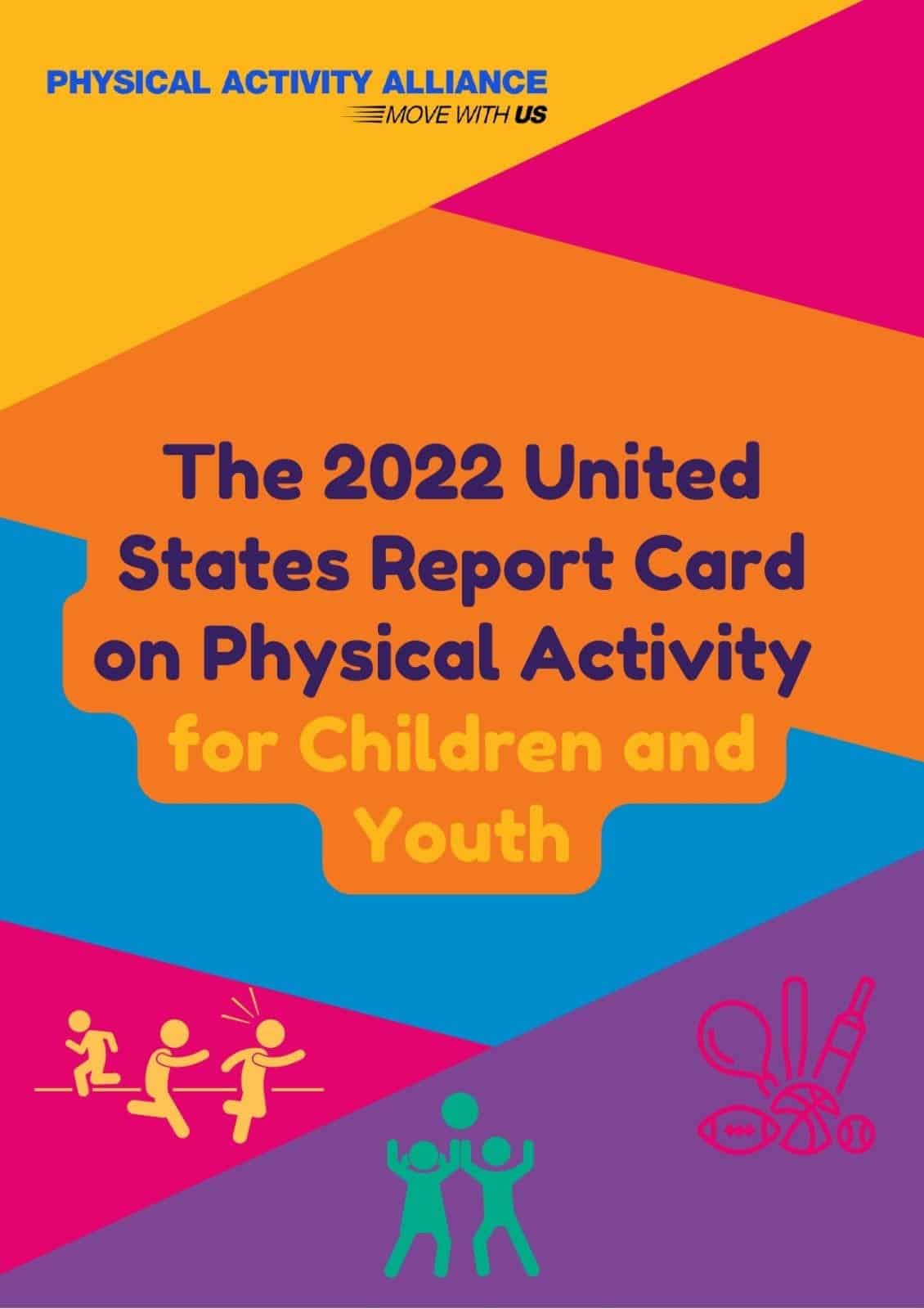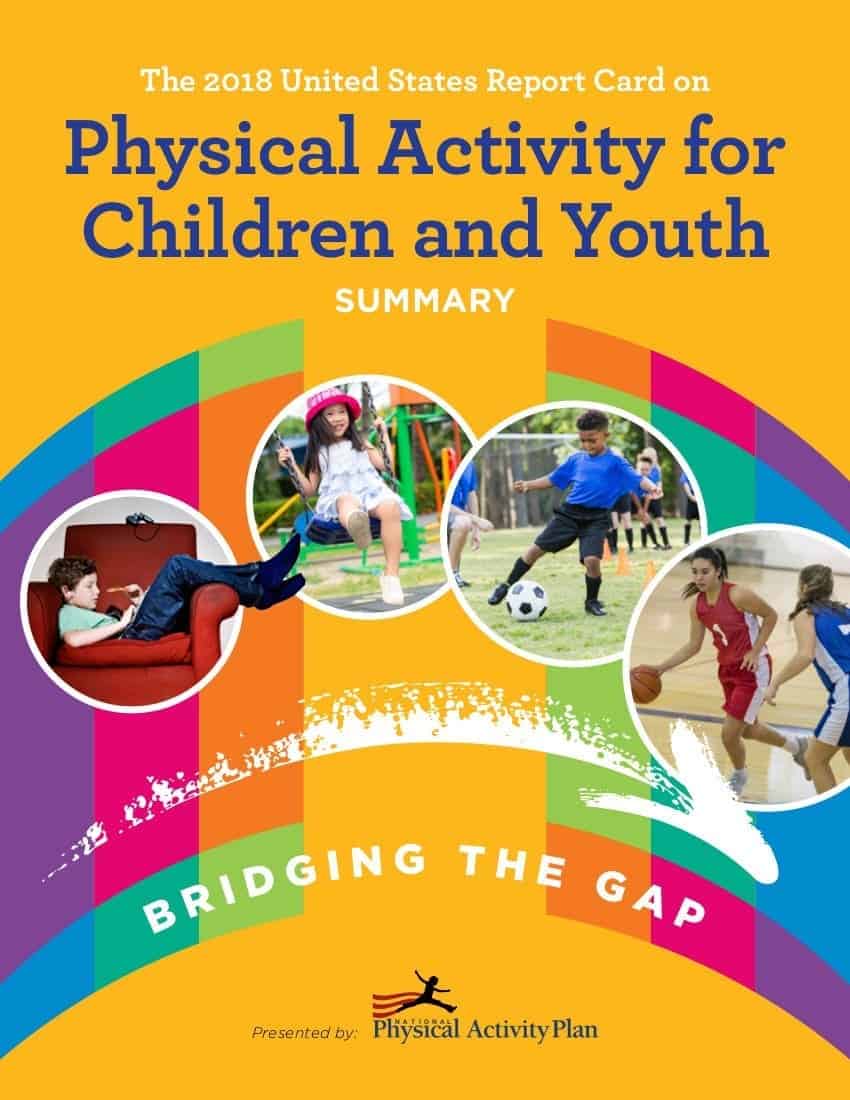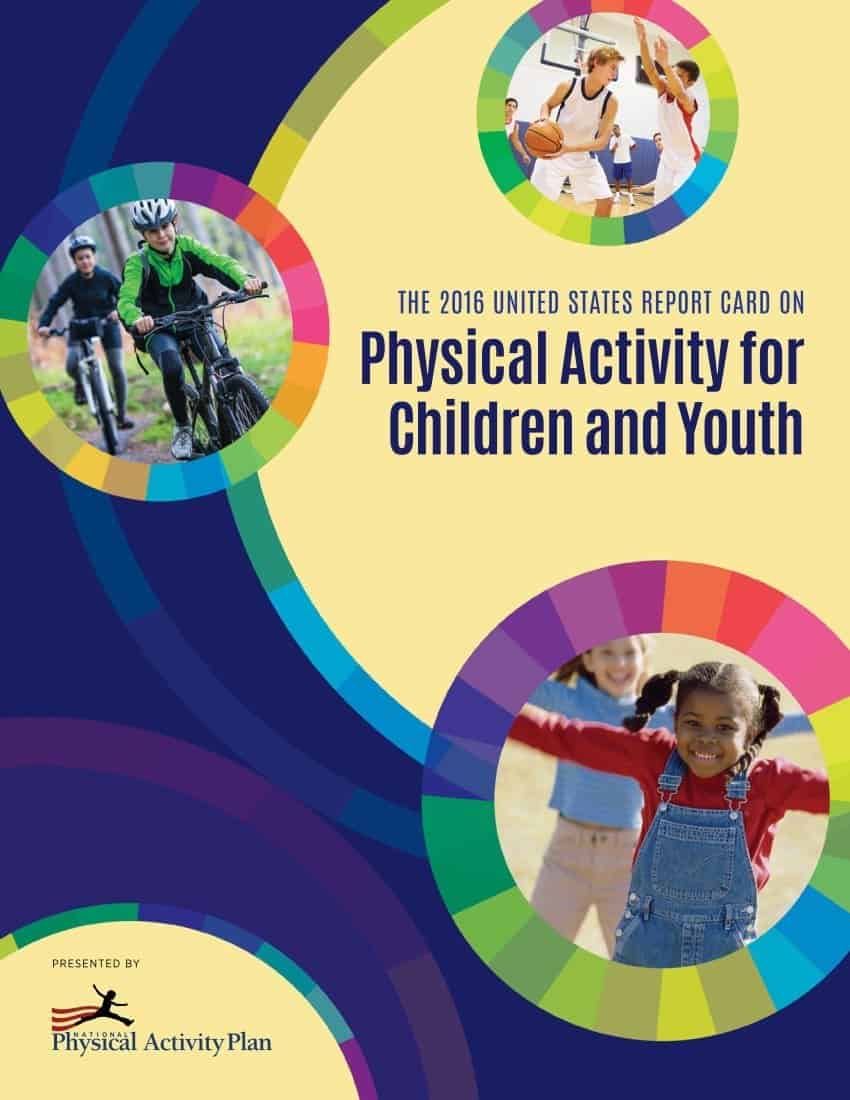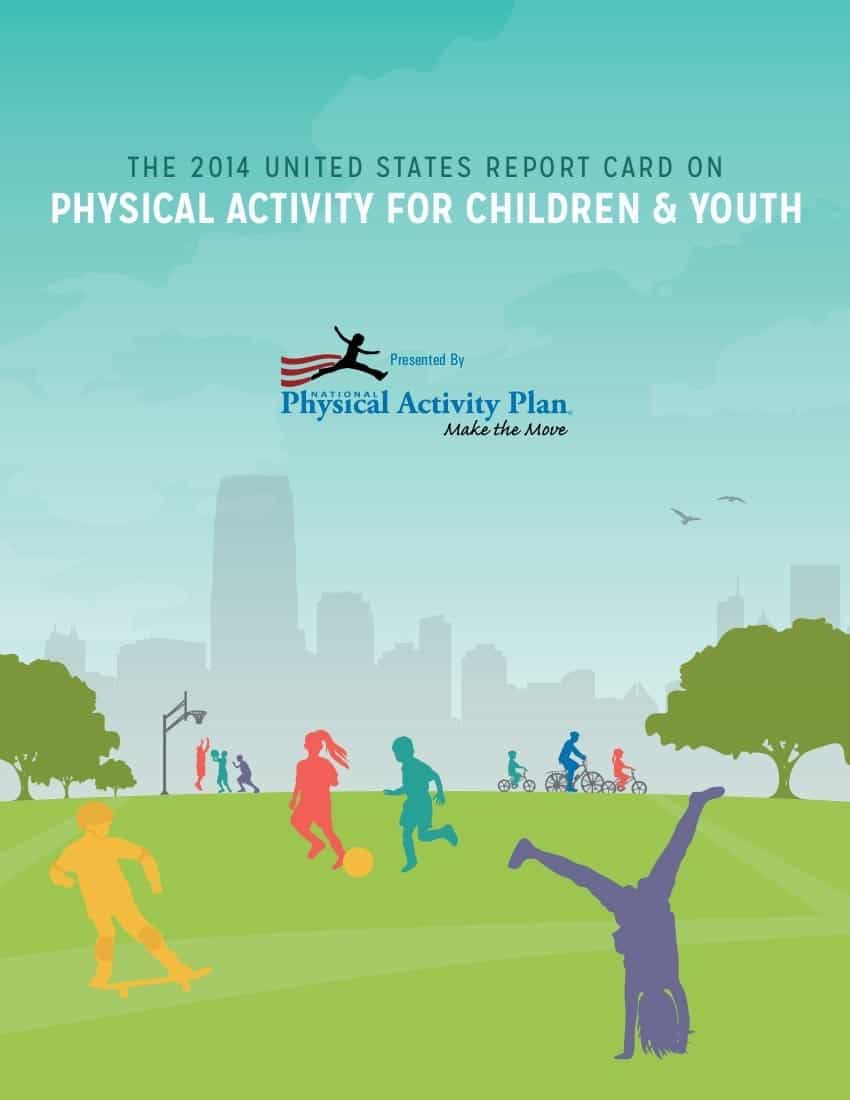
-
The Global Matrix 5.0
-
The Global Matrix 4.0
-
The Global Matrix 3.0
-
The Global Matrix 2.0
-
The Global Matrix 1.0

Report Card Leaders
Jordan Carlson, PH.D.
Jordan Carlson, PhD, is a Professor of Pediatrics at Children’s Mercy Hospital and the University of Missouri – Kansas City. He has 15 years of experience leading research on physical activity and public health. His research program integrates epidemiology, intervention, and measurement research focused on active living as a wide-reaching source of daily physical activity for both children and adults. He became the Chair of the U.S. Report Card in 2023.
Amanda Staiano, PH.D.
Amanda Staiano, PhD, is Associate Professor at LSU’s Pennington Biomedical Research Center in Baton Rouge, Louisiana. She leads the Pediatric Obesity and Health Behavior Laboratory and has published over 135 peer-reviewed scientific manuscripts on physical activity, sedentary behavior, and obesity in children and adolescents. Her research is anchored in behavioral science, epidemiology, and implementation science. Dr. Staiano serves as Co-Chair of the U.S. Report Card.
Report Card Grades
- Overall Physical Activity: B-
- Organized Sport and Physical Activity: C
- Active Play: INC
- Active Transportation: D-
- Sedentary Behavior: D
- Physical Fitness: C-
- Family and Peers: INC
- School: D-
- Community and Environment: C
- Government: INC
Related Links
Report Card Leader
Peter T. Katzmarzyk, Ph.D., FACSM, FTOS, FAHA
Dr. Katzmarzyk is currently a Professor and the Associate Executive Director for Population and Public Health Sciences at the Pennington Biomedical Research Center in Baton Rouge, Louisiana, USA where he holds the Marie Edana Corcoran Endowed Chair in Pediatric Obesity and Diabetes. Dr. Katzmarzyk is an internationally recognized leader in the field of physical activity and obesity epidemiology, with a special emphasis on pediatrics and ethnic health disparities. He has over two decades of experience in conducting large clinical and population-based studies in both children and adults. Dr. Katzmarzyk has a special interest in global health, and has a record of building research capacity in physical activity and obesity research in developing countries. He has published his research findings in more than 400 scholarly journals and books, and has delivered over 160 invited lectures in 15 countries. He is currently an Associate Editor for Medicine and Science in Sports and Exercise and an editorial board member for the International Journal of Obesity, Pediatric Obesity, and Metabolic Syndrome and Related Disorders. In addition to his research efforts, Dr. Katzmarzyk plays a leading role in several national initiatives related to children’s health advocacy, including the President’s Council on Fitness, Sports and Nutrition Science Board and chairing the Research Advisory Committee for the U.S. Report Card on Physical Activity for Children and Youth, a subcommittee of the National Physical Activity Plan Alliance.
Report Card Grades
- Overall Physical Activity: D-
- Organized Sport and Physical Activity: C
- Active Play: INC
- Active Transportation: D-
- Sedentary Behavior: D
- Physical Fitness: C-
- Family and Peers: INC
- School: D-
- Community and Environment: C
- Government: INC
Related Links
Top Three Priorities
- Develop national movement recommendations with guidelines for sedentary behavior and screen time in children and youth.
- Include objective assessments of physical activity, sedentary behavior and physical fitness in ongoing national surveillance programs.
- Schools should invest in infrastructure, programs, and policies that promote active transportation to and from school among their students.
Report Card Leader
Peter T. Katzmarzyk, Ph.D., FACSM, FTOS, FAHA
Dr. Katzmarzyk is currently a Professor and the Associate Executive Director for Population and Public Health Sciences at the Pennington Biomedical Research Center in Baton Rouge, Louisiana, USA where he holds the Marie Edana Corcoran Endowed Chair in Pediatric Obesity and Diabetes. Dr. Katzmarzyk is an internationally recognized leader in the field of physical activity and obesity epidemiology, with a special emphasis on pediatrics and ethnic health disparities. He has over two decades of experience in conducting large clinical and population-based studies in both children and adults. Dr. Katzmarzyk has a special interest in global health, and has a record of building research capacity in physical activity and obesity research in developing countries. He has published his research findings in more than 400 scholarly journals and books, and has delivered over 160 invited lectures in 15 countries. He is currently an Associate Editor for Medicine and Science in Sports and Exercise and an editorial board member for the International Journal of Obesity, Pediatric Obesity, and Metabolic Syndrome and Related Disorders. In addition to his research efforts, Dr. Katzmarzyk plays a leading role in several national initiatives related to children’s health advocacy, including the President’s Council on Fitness, Sports and Nutrition Science Board and chairing the Research Advisory Committee for the U.S. Report Card on Physical Activity for Children and Youth, a subcommittee of the National Physical Activity Plan Alliance.
Conference Abstract: Movement to Move
Report Card Title: The 2018 U.S. Report Card on Physical Activity for Children and Youth
Authors: Peter T. Katzmarzyk, Kara D. Denstel, Kim Beals, Jordan Carlson, Scott E. Crouter, Thomas L. McKenzie, Russell R. Pate, Amanda E. Staiano, Susan B. Sisson, Dianne S. Ward, Melicia Whitt-Glover, Carly Wright.
Introduction: The 2018 United States (U.S.) Report Card on Physical Activity for Children and Youth provides a comprehensive evaluation of physical activity levels and factors influencing physical activity among children and youth.
Methods: A Report Card Research Advisory Committee was assembled under the auspices of the National Physical Activity Plan Alliance. The Committee reviewed the evidence and assigned grades to 10 indicators using data from nationally representative studies and surveys. The indicators included: 1) overall physical activity, 2) sedentary behavior, 3) active transportation, 4) organized sport participation, 5) active play, 6) physical fitness, 7) family and peers, 8) school, 9) community and the built environment, and 10) government strategies and investments.
Results: Sufficient data were available to assign grades for 7 of the 10 indicators. The assigned grades ranged from C to D- (see Table below). Due to insufficient data being available, grades of incomplete (INC) were assigned to active play, family and peers, and government strategies and investments.
| Table of Report Card Indicators and Grades | |
| Indicator | 2018 Grade |
| Overall Physical Activity | D- |
| Sedentary Behaviors | D |
| Active Transportation | D- |
| Organized Sport Participation | C |
| Active Play | INC |
| Physical Fitness | C- |
| Family and Peers | INC |
| School | D- |
| Community and Built Environment | C |
Conclusions and Recommendations: The poor grades on the 2018 report card indicate that children and youth in the U.S. are insufficiently active, and that additional work is required to provide opportunities for children to lead active lifestyles. Adult decision-makers, including parents, teachers, school administrators, health care providers, and policymakers are encouraged to make additional efforts to facilitate opportunities for physical activity for children and youth.
Report Card Grades
- Overall Physical Activity: D-
- Organized Sport Participation: C-
- Active Play: INC
- Active Transportation: F
- Sedentary Behaviors: D-
- Family and Peers: INC
- School: D+
- Community and Built Environment: B-
- Government Strategies and Investments: INC
Related Links
Recommendations
- School Settings Hold a Realistic and Evidence based Opportunity to Increase Physical Activity Among Youth and Should be a Key Part of a National Strategy to Increase Physical Activity.
- Preschool and Childcare Centers That Serve Young Children Are an Important Setting in Which to Enhance Physical Activity.
- Changes Involving the Built Environment and Multiple Sectors Are Promising.
- To Advance Efforts to Increase Physical Activity Among Youth, Key Research Gaps Should Be Addressed.
Report Card Leader
Peter T. Katzmarzyk, Ph.D., FACSM, FTOS, FAHA
Dr. Katzmarzyk is currently a Professor and the Associate Executive Director for Population and Public Health Sciences at the Pennington Biomedical Research Center in Baton Rouge, Louisiana, USA where he holds the Marie Edana Corcoran Endowed Chair in Pediatric Obesity and Diabetes. Dr. Katzmarzyk is an internationally recognized leader in the field of physical activity and obesity epidemiology, with a special emphasis on pediatrics and ethnic health disparities. He has over two decades of experience in conducting large clinical and population-based studies in both children and adults. Dr. Katzmarzyk has a special interest in global health, and has a record of building research capacity in physical activity and obesity research in developing countries. He has published his research findings in more than 400 scholarly journals and books, and has delivered over 160 invited lectures in 15 countries. He is currently an Associate Editor for Medicine and Science in Sports and Exercise and an editorial board member for the International Journal of Obesity, Pediatric Obesity, and Metabolic Syndrome and Related Disorders. In addition to his research efforts, Dr. Katzmarzyk plays a leading role in several national initiatives related to children’s health advocacy, including the President’s Council on Fitness, Sports and Nutrition Science Board and chairing the Research Advisory Committee for the U.S. Report Card on Physical Activity for Children and Youth, a subcommittee of the National Physical Activity Plan Alliance.
Testimonial
"The US Report Card is a major collaboration among partners of the National Physical Activity Plan Alliance. Having the Report Card initiative under this umbrella has been very rewarding as it allows for the rapid uptake of the results with organizations that can respond with strategies to improve the grades." - Peter T. Katzmarzyk, Ph.D., FACSM, FTOS, FAHA
Conference Abstract: 6th International Congress on Physical Activity and Public Health
Conference Abstract: 6th International Congress on Physical Activity and Public Health
Results from the United States 2016 Report Card on Physical Activity for Children and Youth
Katzmarzyk PT, Denstel KD, Beals K, Bolling C, Wright C, Crouter SE, McKenzie TL, Pate RR, Saelens BE, Staiano AE, Stanish HI, Sisson SB
Background: The purpose of the 2016 U.S. Report Card on Physical Activity for Children and Youth is to provide a comprehensive evaluation of physical activity levels and the indicators influencing physical activity among children and youth. Methods: The Report Card includes 10 indicators: overall physical activity, sedentary behavior, active transportation, organized sport participation, active play, health-related fitness, family and peers, school, community and the built environment, and government strategies and investments. Nationally representative data were used to evaluate the indicators using a standard grading rubric. Results: Sufficient data were available to assign grades to 7 of the indicators, and these ranged from B- for community and the built environment to F for active transportation. Overall physical activity received a grade of D- due to the low prevalence of meeting physical activity guidelines. A grade of D was assigned to health-related fitness, reflecting the low prevalence of achieving satisfactory levels of cardiorespiratory fitness. Age, gender and racial/ethnic disparities were observed for several indicators. Conclusions: Continued poor grades suggest that additional work is required to provide opportunities for U.S. children to be physically active. The observed disparities indicate that special attention should be given to high-risk subgroups when implementing physical activity strategies.
Report Card Grades
- Overall Physical Activity: D-
- Organized Sport Participation: C-
- Active Play: INC
- Active Transportation: F
- Sedentary Behaviors: D
- Family and Peers: INC
- School: C-
- Community and Built Environment: B-
- Government Strategies and Investments: INC
Related Links
Report Card Leader
Peter T. Katzmarzyk, Ph.D., FACSM, FTOS, FAHA
Dr. Katzmarzyk is currently a Professor and the Associate Executive Director for Population and Public Health Sciences at the Pennington Biomedical Research Center in Baton Rouge, Louisiana, USA where he holds the Marie Edana Corcoran Endowed Chair in Pediatric Obesity and Diabetes. Dr. Katzmarzyk is an internationally recognized leader in the field of physical activity and obesity epidemiology, with a special emphasis on pediatrics and ethnic health disparities. He has over two decades of experience in conducting large clinical and population-based studies in both children and adults. Dr. Katzmarzyk has a special interest in global health, and has a record of building research capacity in physical activity and obesity research in developing countries. He has published his research findings in more than 400 scholarly journals and books, and has delivered over 160 invited lectures in 15 countries. He is currently an Associate Editor for Medicine and Science in Sports and Exercise and an editorial board member for the International Journal of Obesity, Pediatric Obesity, and Metabolic Syndrome and Related Disorders. In addition to his research efforts, Dr. Katzmarzyk plays a leading role in several national initiatives related to children’s health advocacy, including the President’s Council on Fitness, Sports and Nutrition Science Board and chairing the Research Advisory Committee for the U.S. Report Card on Physical Activity for Children and Youth, a subcommittee of the National Physical Activity Plan Alliance.
